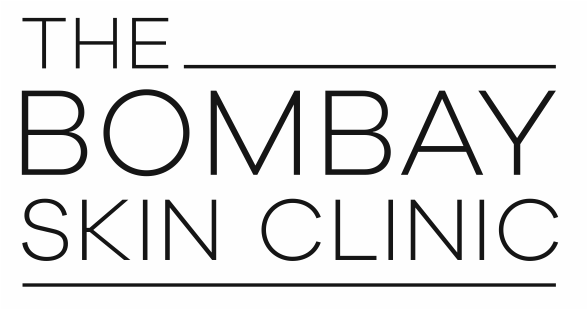Overview | Micellar Water Facts | Brands Available | How to Use | Results
These days a lot of advertisements regarding micellar water show up on TV. This has led to many of my patients asking me questions about this wonder product and whether it is what the TV ads make it out to be. So, to help you understand, I am going to answer some frequently asked questions about micellar water.
What is micellar water?
Micellar water is a product that you can use for cleansing your face of dirt and even make-up. After using micellar water, you do not need to wash your face with regular water. This is what distinguishes it from a cleanser.
What are some important facts about micellar water?
This cleansing solution has originated in France. It has been named after the molecules of micelle that are found in the solution. These molecules attach themselves to dirt on the skin, and as the micellar water is wiped across the skin, the micelle molecules pull away all bits of grime and make-up. The major advantage of micellar water is that it wipes away the dirt and grime without destroying the skin barrier and helps to maintain the endogenous lipid and native skin structure.
Finally, you need to use micellar water with a cotton piece; you cannot simply apply it directly by splashing it on your face.
When and where can you use micellar water?
Micellar water can be used at any time of the day or night when you feel like cleaning your face.
What are the top brands available in the market?
A lot of my patients face confusion when it comes to picking the best brand of micellar water. There are many leading brands out there and while it is not possible to mention all here, I will cover the ones that I personally am fond of:
- Bioderma Sensibio Micellar Water – This fabulous product is free from alcohol and fragrance. It removes impurities while maintaining the pH level of the skin.
- Garnier Micellar Water – This budget-friendly brand is the perfect everyday use product. It is enriched with argan oil and keeps your skin clean and nourished. It is also free from parabens.
- Forest Essentials Micellar Water – This product is made with real Himalayan spring water and it is enriched with glycerin, ashwagandha, and rose. It cleans the skin while deeply moisturizing it and enriching it with its anti-aging effects. And, a study by the National Center for Biotechnology Information notes how glycerin in cleansers is a huge step forward in the development of skin cleaning products. However, oily skin would not benefit from micellar water, and in humid environment avoid using glycerin-based products as it can clog the pores.
- Avene Thermal spring water: This water is captured directly from its source point, thus all its softening and soothing properties remain intact. It offers long-lasting protection to your skin.
- Kiehls Herbal infused micellar water: This is a very skin-friendly product that gently removes dirt, makeup, and oil from your skin. It is made from 99.8% naturally-derived ingredients and does not strip your skin of any softness.
You can even opt for micellar water pads if you do not want to purchase the entire bottle.
What are some of the benefits of using micellar water?
Micellar water cleans the skin of impurities and make-up effortlessly. It also works as a toner and leaves the skin moisturized. It does not leave behind an oily residue and is suited to all skin types. In fact, a study by the Journal of the American Academy of Dermatology has shown that micellar water is especially great for cleansing sensitive skin types.
Is there any difference between cleansing with soap and micellar water?
The answer to this question is a resounding yes. Using regular soap can strip your skin off its natural oils. This is particularly true for skin that is prone to acne. You can be left red-faced and have skin that is irritated. Micellar water can cleanse and hydrate at the same time. Instead of aggravating your skin, it will help soothe it.
Soaps also remain in the skin even after cleansing. The cleansing can disrupt the skin barrier and also leave the skin dry. In addition to the desired benefit of improving skin hygiene, surfactants also extract skin components during cleansing and remain in the stratum corneum (SC) after rinsing. These side-effects disrupt SC structure and degrade its barrier properties.
What are the steps in using micellar water?
Using the product is really simple. You need to saturate a piece of cotton with micellar water and then gently swipe this across your face to clean it. You can even dab it onto the areas that need cleansing, so the micelle molecules can absorb dirt better.
In fact, a study by the IOSR Journal of Pharmacy and Biological Science notes that micellar water can replace any cleansing routine.
What results can you expect after usage?
You will have clean skin that is fresh and visibly moisturized after using micellar water.
How often do you have to use micellar water?
You can use micellar water whenever you feel the need to clean your skin. Ideally, you can use it twice a day: once in the morning and once before bedtime.
What are some of the pros and cons of micellar water?
Micellar water really has a lot of benefits. These include:
- Ease of use
- Leaves no oily residue
- Suitable for all skin types
- Removes make-up
There are some cons to micellar water but I find that these arise mainly from using an incorrect brand of this product. These may include:
- May contain bad ingredients like alcohol and fragrance
- May not be able to clean heavy makeup for which you will require tap water and a creamy make-up remover
When should I avoid using micellar water?
If you are wearing heavy make-up, you would want to skip micellar water, as it will not do much for your skin. You need to use a proper cream-based make-up remover and clean your skin using water too. Also, any micellar water that has parabens, sulfates, alcohol, and dye can harm your skin and should be avoided.
Why should you consult a dermatologist before using micellar water?
Normally, micellar water can be used safely on any skin type. However, if you have pressing skin problems such as rosacea, psoriasis, or eczema, it is best to talk to a dermatologist before purchasing micellar water. They would be able to recommend the right brand for you.
A few DIY options for micellar water include:
- Rose water spray
- Aloe vera spray
- Herbal flower infusion
Closing thoughts
In my own opinion, micellar water is a must-have in any woman’s beauty bag. It does live up to all that it promises to do as a complete cleansing routine for your skin. So, go ahead and check in with your dermatologist and get a micellar water product suited to your skin type.
References
- Journal of the American Academy of Dermatology – https://www.jaad.org/article/S0190-9622(17)31391-9/fulltext
- IOSR Journal of Pharmacy and Biological Science – http://www.iosrjournals.org/iosr-jpbs/papers/Vol12-issue5/Version-7/N12050798100.pdf
- National Center for Biotechnology Information – https://www.ncbi.nlm.nih.gov/pmc/articles/PMC3425021/

 Dr. Batul Patel is a celebrity dermatologist and the medical director of The Bombay Skin Clinic an award winning clinic located in South Mumbai & Bandra. She is a passionate and dedicated dermatologist with expertise in all fields of dermatology, trichology and aesthetic dermatology. She has been practicing for more than a decade. Her range of expertise include emsculpt NEO, coolsculpting, fillers, acne treatment, lasers, skin rejuvenation, hair loss, hair transplant, PRP & pigmentation treatments.
Dr. Batul Patel is a celebrity dermatologist and the medical director of The Bombay Skin Clinic an award winning clinic located in South Mumbai & Bandra. She is a passionate and dedicated dermatologist with expertise in all fields of dermatology, trichology and aesthetic dermatology. She has been practicing for more than a decade. Her range of expertise include emsculpt NEO, coolsculpting, fillers, acne treatment, lasers, skin rejuvenation, hair loss, hair transplant, PRP & pigmentation treatments.